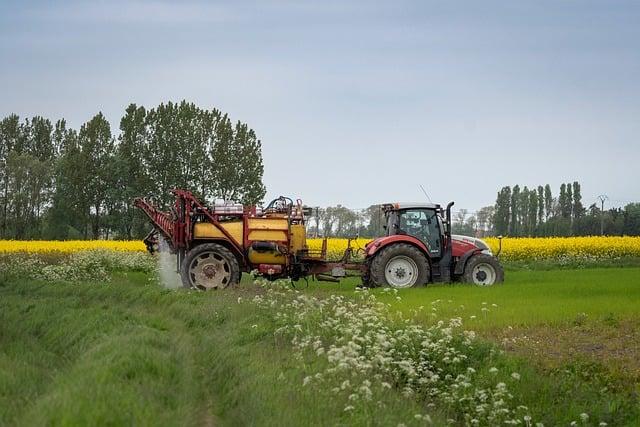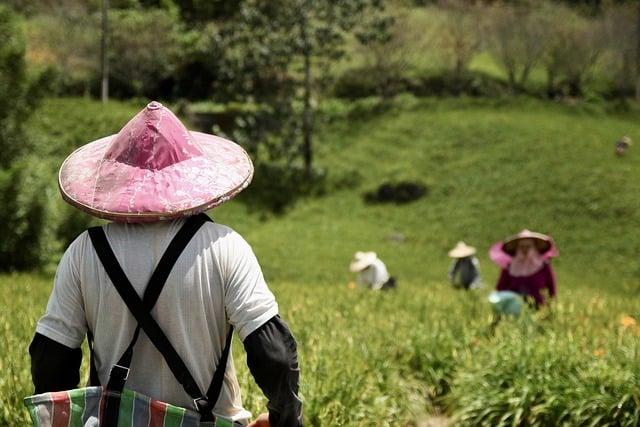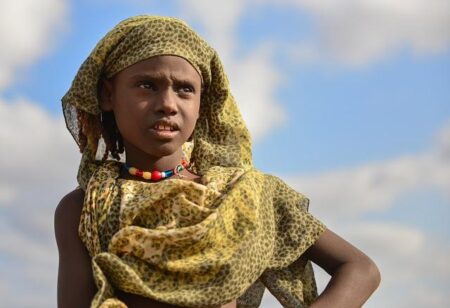Introduction
Situated at the crossroads of the Horn of Africa, Djibouti is a nation characterized by its strategic location, vibrant culture, and remarkable biodiversity. As the contry grapples with the challenges of food security and sustainable agricultural practices,the Food and Agriculture Organization of the United Nations (FAO) plays a pivotal role in addressing these issues. This article delves into the initiatives and programs spearheaded by the FAO in Djibouti, highlighting the organization’s efforts to enhance food production, bolster resilience against climate change, and support local farmers. By examining the synergies between international cooperation and local knowledge, we explore how the FAO’s interventions are shaping the future of agriculture in Djibouti and contributing to the region’s overall food security landscape.
Understanding Djibouti’s Agricultural Landscape and Challenges

Djibouti’s agricultural landscape is characterized by its arid climate and limited arable land, which presents an array of challenges for food production. Despite this, the country has a unique reliance on customary farming practices, combined with efforts to adopt modern agricultural techniques. Farmers typically cultivate a variety of crops, including fruits such as bananas and dates, as well as vegetables like tomatoes and onions. The availability of water,primarily from rainfall and underground aquifers,remains a critical factor influencing agricultural output.
Moreover, the country faces multiple hurdles that threaten its food security and agricultural sustainability. These challenges include:
- Climate Variability: Frequent droughts and changing weather patterns hinder agricultural productivity.
- Lack of Infrastructure: Poor road networks and storage facilities limit market access for farmers, resulting in food waste.
- Financial Constraints: Limited financial resources restrict farmers’ ability to invest in improved technologies and practices.
- Pest and Disease Pressure: Crop diseases and pests pose significant risks, often leading to reduced yields.
Addressing these challenges is paramount for Djibouti’s agricultural progress. Strategies are being implemented, such as enhancing irrigation systems and promoting sustainable agricultural practices, to improve resilience and food security. by investing in education and extension services for farmers, Djibouti can foster innovation and advance its agricultural landscape.
The Role of FAO in Promoting Sustainable Farming Practices
The Food and Agriculture Organization (FAO) plays a pivotal role in advocating for sustainable farming practices across the globe, especially in countries like Djibouti, where agriculture is a crucial component of food security and economic growth. By providing technical expertise and resources, the FAO assists local farmers in adopting methods that not only increase productivity but also preserve the environment. Through initiatives such as training programs, the organization emphasizes integrated farming systems that promote soil health, water conservation, and biodiversity. Some of the key areas where FAO’s influence is felt include:
- Capacity Building: Training farmers on sustainable practices, such as agroecology and organic farming.
- Resource management: implementing efficient water-use strategies to combat arid conditions.
- Policy Support: Collaborating with governments to develop policies that encourage sustainable agriculture.
Along with hands-on training and educational resources, the FAO also fosters partnerships between various stakeholders, including NGOs and local communities, to create a cohesive approach to sustainable agriculture. This collaborative effort allows for the sharing of knowledge and innovation, enabling farmers to learn from one another’s experiences. Furthermore, the FAO’s initiatives are often backed by data that show the tangible benefits of sustainable practices, such as improvements in crop yields and resilience to climate change.Below is a brief overview of the impact of FAO programs in Djibouti:
| Program | Impact |
|---|---|
| Agroecology Training | 50% increase in sustainable crop yields |
| Water Conservation techniques | 30% reduction in water usage |
| Organic Farming Support | 20% increase in local income |
enhancing Food Security Through Local Agricultural Initiatives

Local agricultural initiatives are becoming increasingly vital in the quest for improved food security in Djibouti. By empowering local farmers and fostering sustainable practices,these programs aim to not only enhance food production but also strengthen community resilience against external shocks. Key components of these initiatives include:
- Training programs: Providing local farmers with knowledge on modern farming techniques, crop rotation, and sustainable water management.
- Access to resources: Ensuring that farmers have access to high-quality seeds, fertilizers, and tools necessary for efficient farming.
- Market support: Facilitating connections between producers and local markets to improve income and reduce food waste.
Furthermore, collaboration between government agencies, NGOs, and community organizations plays a crucial role in the success of these initiatives. Through partnerships, resources can be pooled for maximum impact, leading to innovative solutions tailored to local challenges. A focus on diversity in crops can also enhance nutritional outcomes, with initiatives aimed at introducing traditional and underutilized species. This multifaceted approach ensures that local agricultural initiatives not only address immediate food security concerns but also pave the way for sustainable development.
| Initiative | Impact |
|---|---|
| Training Programs | Improved agricultural techniques and crop yield |
| Resource Access | Enhanced quality of produce and sustained farming |
| Market support | Increased income for local farmers |
Collaboration with Farmers and Communities for Improved Outcomes

Engaging farmers and local communities is essential for achieving sustainable food systems and improving agricultural outcomes in Djibouti. By fostering strong partnerships with stakeholders at all levels,the Food and Agriculture Organization (FAO) is working to implement innovative farming practices that address the unique challenges faced in the region. these collaborations focus on sharing knowledge and resources, which enables farmers to adopt methods that increase productivity while promoting environmental stewardship. The following initiatives exemplify this commitment:
- Capacity building: Conducting workshops and training sessions to enhance farmers’ skills in modern agricultural techniques.
- Resource sharing: Providing access to seeds, fertilizers, and tools that improve crop yields.
- Community Engagement: Involving local groups in the decision-making process to ensure that initiatives are culturally relevant and effective.
In addition, the FAO seeks to amplify the voices of smallholder farmers and local communities through the establishment of cooperative networks. These networks serve as platforms for collaboration,knowledge exchange,and collective bargaining,ultimately leading to enhanced food security and resilience against climate change. The table below highlights key aspects of these cooperative networks:
| Aspect | Description |
|---|---|
| Membership | Local farmers and community representatives. |
| Focus Areas | Agricultural production, market access, and sustainability. |
| Goals | Increase income, reduce poverty, and enhance food security. |
Innovative Solutions for Climate Resilience and Food Production

In Djibouti, the integration of cutting-edge agricultural practices is fostering resilience against climate challenges. Farmers are adopting drip irrigation systems that optimize water usage, significantly reducing waste while enhancing crop yields. Alongside this, the introduction of climate-smart agricultural techniques is empowering local communities to adapt to shifting environmental conditions. Key methods include:
- Soil conservation practices that improve soil health and productivity.
- Crop rotation and intercropping to maximize land use and control pests naturally.
- Diverse seed varieties that are resilient to drought and heat, ensuring food security.
Furthermore,the collaboration between local farmers and the Food and Agriculture Organization is vital in promoting sustainable initiatives. Training programs focused on agroecology and sustainable land management are equipping farmers with the skills necessary to combat environmental stressors. A recent impact assessment highlighted the positive outcomes of these initiatives:
| Measure | Before Implementation | After implementation |
|---|---|---|
| Water Usage Efficiency | 40% | 70% |
| Crop Yield Increase | 30% | 60% |
| Pest Resistance | 15% | 50% |
Policy Recommendations for Strengthening Djibouti’s Food Systems

To enhance the resilience and sustainability of Djibouti’s food systems, a multi-faceted approach is required. First, it is crucial to invest in agricultural infrastructure that supports efficient storage, processing, and distribution of food products. This can significantly reduce post-harvest losses, ensuring that more food reaches the market and consumers. Furthermore, promoting climate-smart agricultural practices will allow farmers to adapt to the increasing unpredictability of climatic conditions while maintaining productivity. Investing in local research and development will equip farmers with better seeds that are resistant to drought and pests, helping to secure livelihoods and food security.
Moreover, strengthening public-private partnerships can facilitate the growth of local food businesses, driving innovation and job creation within the sector. Establishing training programs aimed at enhancing the skills of smallholder farmers will empower them to improve their production techniques and access new markets. Additionally, it’s essential to develop policies that prioritize social safety nets and nutritional programs, ensuring that vulnerable populations have access to sufficient and nutritious food. The table below summarizes key action points for targeted policy implementation:
| Action point | Description |
|---|---|
| Improve Infrastructure | Build storage and distribution networks to minimize waste. |
| Foster Climate-Smart Practices | Encourage techniques to adapt to climate change effects. |
| Public-Private Partnerships | Collaborate with local businesses to innovate food systems. |
| Skill development | Offer training for farmers on modern agricultural methods. |
| Social Safety Nets | Implement programs to ensure food access for vulnerable groups. |
Key Takeaways
Djibouti’s collaboration with the Food and Agriculture Organization of the United Nations exemplifies the critical intersection of sustainable development and food security in a region facing unique challenges. As this small yet strategically located nation grapples with its vulnerabilities, the support and guidance provided by the FAO are instrumental in shaping resilient agricultural practices and enhancing food availability. Through initiatives targeting climate adaptation, resource management, and community engagement, Djibouti is taking significant strides toward achieving its food security goals and promoting a more sustainable agricultural future. As the nation continues to rely on international partnerships to navigate its path forward, the efforts of the FAO stand as a testament to the power of global cooperation in addressing food-related challenges, ultimately paving the way for a healthier and more prosperous society.The journey, while complex, underscores a shared commitment to fostering resilience in the face of adversity, with Djibouti positioning itself as a beacon of progress in the pursuit of sustainable development in the region.







